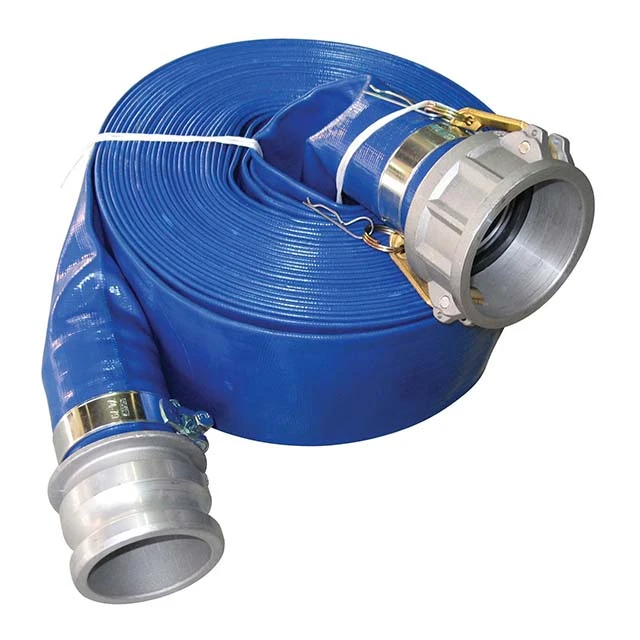8mm Low Pressure LPG Hose for Safe and Efficient Gas Delivery Applications
Understanding 8mm Low Pressure LPG Hoses A Comprehensive Guide
When it comes to handling liquefied petroleum gas (LPG) safely and efficiently, the choice of hose is paramount. One popular option is the 8mm low pressure LPG hose, which is specifically designed to handle the unique properties of LPG under low pressure conditions. This article delves into the features, applications, and safety considerations of 8mm low pressure LPG hoses, providing both practical information and safety guidelines for consumers and professionals alike.
What is an 8mm Low Pressure LPG Hose?
An 8mm low pressure LPG hose is a flexible tube used to transport LPG, a mixture of propane and butane. As an integral part of various LPG systems, this hose typically has an inner diameter of 8 millimeters and is engineered to withstand low pressure environments, which makes it ideal for residential and commercial applications. These hoses are constructed from durable materials that can resist the corrosive effects of gas, ensuring a long service life.
Applications
8mm low pressure LPG hoses are widely used in various settings, including
1. Residential Use They are commonly found in gas appliances such as cookers, heaters, and outdoor grills, where a reliable and safe gas supply is necessary.
2. Commercial Settings Restaurants and food stalls utilize these hoses to connect gas appliances like ovens and fryers to LPG tanks, playing a crucial role in food preparation and cooking.
3. Industrial Applications Some industrial operations require LPG for specific processes or equipment. An 8mm hose can effectively facilitate gas flow in these environments.
4. Recreational Use Campers and outdoor enthusiasts often rely on these hoses for portable gas appliances, such as stoves and heaters, enhancing comfort during outdoor activities.
Material and Construction
8mm low pressure lpg hose

Typically, an 8mm low pressure LPG hose is constructed from synthetic rubber or thermoplastic materials, which provide excellent flexibility and resistance to high temperatures. Reinforcements, often in the form of textile or fiber braiding, enhance the hose's strength and durability, preventing kinks and damage during use.
Safety Considerations
While using 8mm low pressure LPG hoses offers many advantages, safety should always be a priority. Here are some essential safety tips
1. Regular Inspection Periodically check the hoses for wear and tear, including cracks, bulges, or any signs of leakage. Any damaged hose should be replaced immediately.
2. Proper Installation Ensure that hoses are installed correctly, following manufacturer guidelines. Avoid using excessive force during installation, as this may damage the hose.
3. Avoid Overheating Keep hoses away from direct heat sources, as excessive heat can degrade the material and lead to failure.
4. Secure Connections Ensure that all connections are tight and secure to prevent gas leaks. Use appropriate clamps and fittings as recommended.
5. Ventilation Always use LPG appliances in well-ventilated areas to mitigate the risk of gas accumulation and potential explosions.
6. Know Emergency Procedures Familiarize yourself with emergency procedures in case of a gas leak, including how to shut off the gas supply and where to find emergency contacts.
Conclusion
In summary, 8mm low pressure LPG hoses are vital components for efficiently transporting LPG in various applications. Their durability, flexibility, and design make them suitable for both residential and commercial use. However, ensuring proper installation and regular maintenance is crucial to guarantee the safe use of LPG systems. By following the outlined safety measures and being aware of the hose's condition, users can enjoy the benefits of LPG while minimizing risks associated with gas handling. Whether in the kitchen or out in the wilderness, having a reliable LPG hose can make all the difference in enjoying a hassle-free experience.
-
Top Quality Oxy Acetylene Hoses for Sale Fit for Welding DemandsNewsJul.28,2025
-
The Future of Pneumatic Air Tubes in IndustryNewsJul.28,2025
-
Superior and Reliable LPG Hose Pipe Solutions for Every NeedNewsJul.28,2025
-
Exceptionally Durable and Versatile Premium Braided PVC TubingNewsJul.28,2025
-
Best Adapters for Connecting Garden Hose to PVC Pipe ConnectionsNewsJul.28,2025
-
The Essential Role of LPG Hoses in Safe and Efficient Gas DistributionNewsJul.16,2025














